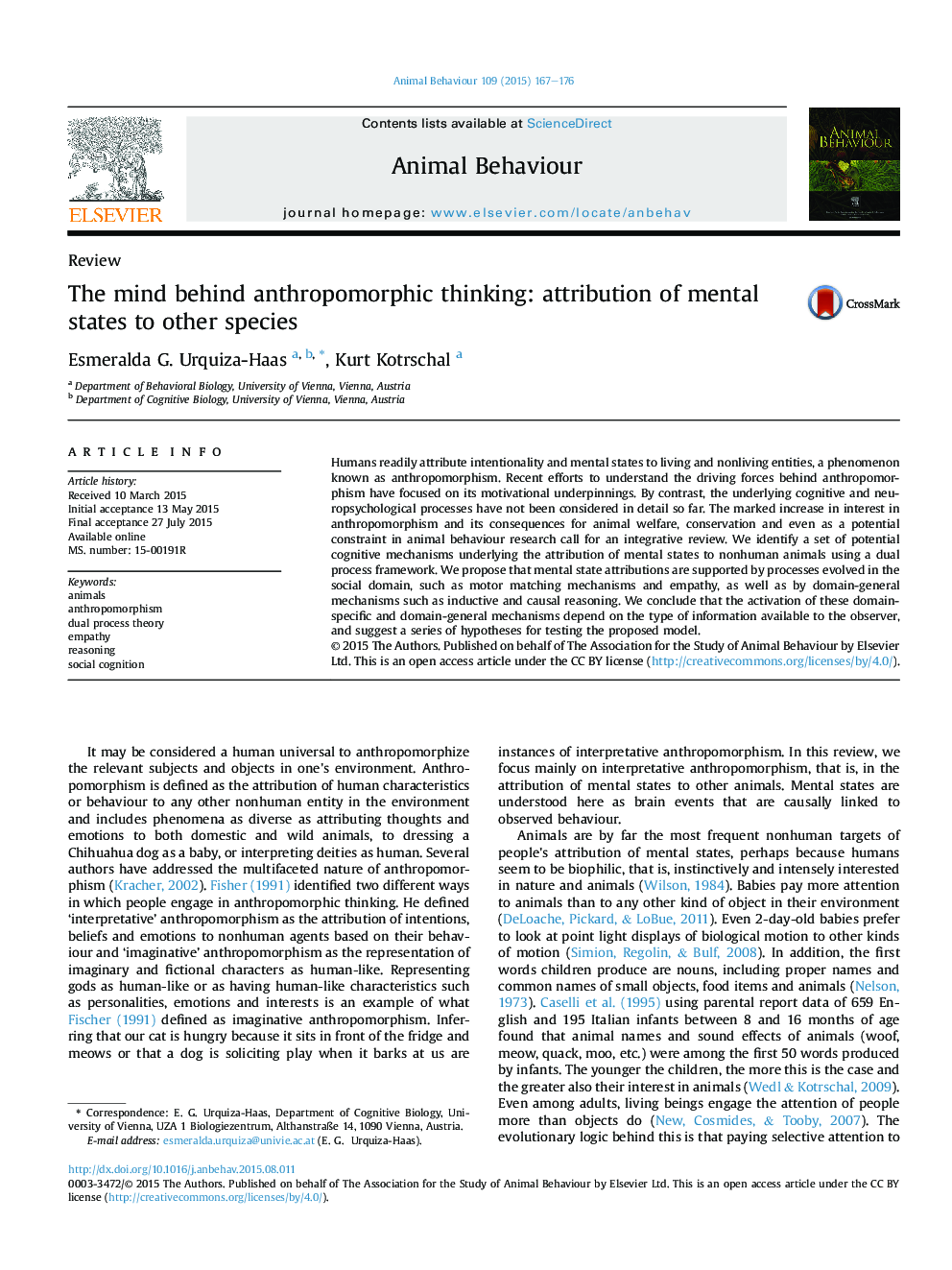| Article ID | Journal | Published Year | Pages | File Type |
|---|---|---|---|---|
| 8489518 | Animal Behaviour | 2015 | 10 Pages |
Abstract
Humans readily attribute intentionality and mental states to living and nonliving entities, a phenomenon known as anthropomorphism. Recent efforts to understand the driving forces behind anthropomorphism have focused on its motivational underpinnings. By contrast, the underlying cognitive and neuropsychological processes have not been considered in detail so far. The marked increase in interest in anthropomorphism and its consequences for animal welfare, conservation and even as a potential constraint in animal behaviour research call for an integrative review. We identify a set of potential cognitive mechanisms underlying the attribution of mental states to nonhuman animals using a dual process framework. We propose that mental state attributions are supported by processes evolved in the social domain, such as motor matching mechanisms and empathy, as well as by domain-general mechanisms such as inductive and causal reasoning. We conclude that the activation of these domain-specific and domain-general mechanisms depend on the type of information available to the observer, and suggest a series of hypotheses for testing the proposed model.
Related Topics
Life Sciences
Agricultural and Biological Sciences
Animal Science and Zoology
Authors
Esmeralda G. Urquiza-Haas, Kurt Kotrschal,
